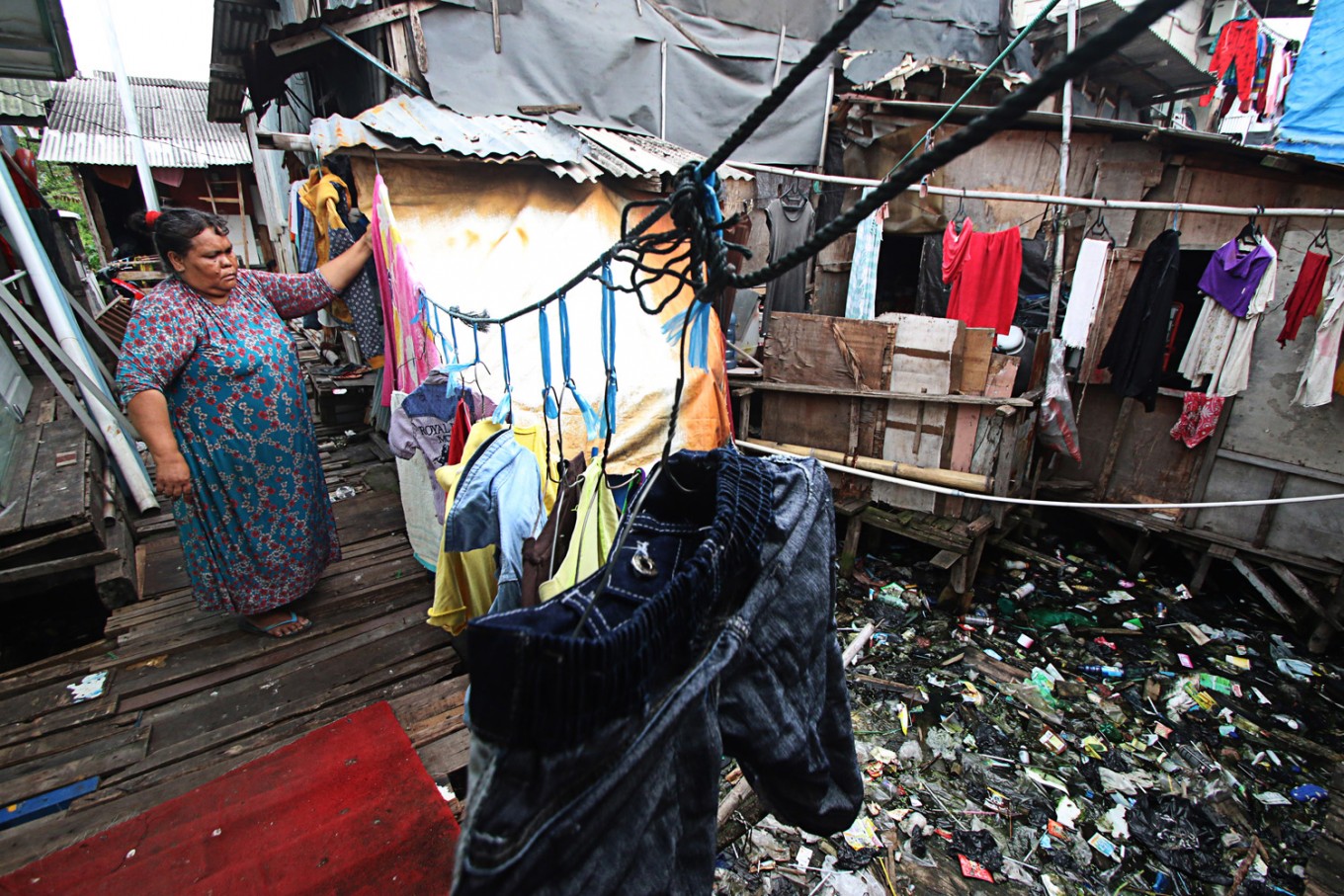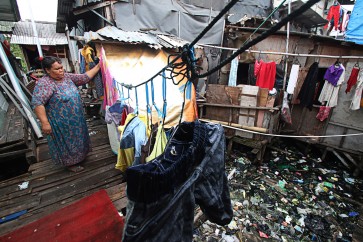Popular Reads
Top Results
Can't find what you're looking for?
View all search resultsPopular Reads
Top Results
Can't find what you're looking for?
View all search resultsHow far can poverty alleviation go?
In Indonesia, poverty reduction is on the right track. The considerable economic growth in the last two decades has helped the country reduce its poverty rate from 24.2 percent in 1998 to a single-digit poverty rate of 9.41 percent in March 2019, according to Statistics Indonesia (BPS). Nevertheless, several challenges remain.
Change text size
Gift Premium Articles
to Anyone
T
hree economists — Esther Duflo, Abhijit Banerjee and Michael Kremer — were awarded the Nobel prize for their experimental approach to poverty alleviation and their promotion of evidence-based policy to combat poverty worldwide. These progressive movements in research and policy advocacy, along with sustained and stable economic growth in recent decades, have contributed to a global decline in poverty.
In 1990, there were 1.9 billion people — 36 percent of the world population — living under the international poverty line of US$1.90 a day. This figure has decreased over time, leaving 650 million people, or roughly 8.6 percent of the world population, in poverty in 2018, according to the World Bank. However, this progress has been distributed unevenly.
The highest concentrations of poverty have shifted from Asia to sub-Saharan Africa. The World Bank stated the number of poor in sub-Saharan Africa actually rose from 278 million in 1990 to 437 million in 2018. This region alone made up more than half of global poverty in 2018. The situation may worsen under the ongoing trade war between the United States and China, which has led to hesitant investment worldwide. Lower investment will induce slow economic growth, which will, in turn, slow global poverty eradication.
Thus a better policy to boost economic growth is not the only strategy governments need. Governments and NGOs should work collaboratively to provide direct support programs like conditional financial assistance for households in the worst-off regions, after testing to establish the real benefits of the programs.
Otherwise, the benchmarks of the global Sustainable Development Goals to end extreme poverty by 2030 will remain a dream for millions.
In Indonesia, poverty reduction is on the right track. The considerable economic growth in the last two decades has helped the country reduce its poverty rate from 24.2 percent in 1998 to a single-digit poverty rate of 9.41 percent in March 2019, according to Statistics Indonesia (BPS). Nevertheless, several challenges remain.
The first is high income inequality. Studies conducted by Oxfam in 2017 and Smeru Research Institute in 2018 confirmed that higher income inequality leads to slower poverty reduction. Income inequality in Indonesia, as measured by the Gini coefficient, decreased only slightly from 0.389 in March 2018 to 0.382 in March 2019, but this is still relatively high compared to other countries in Southeast Asia.


















